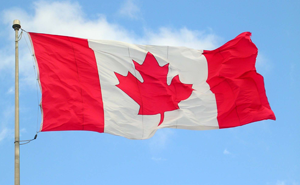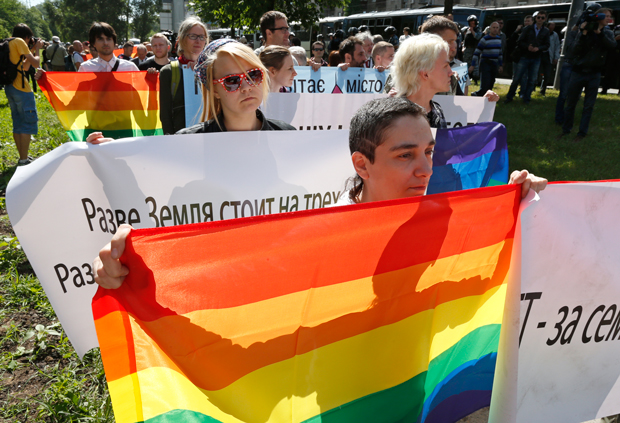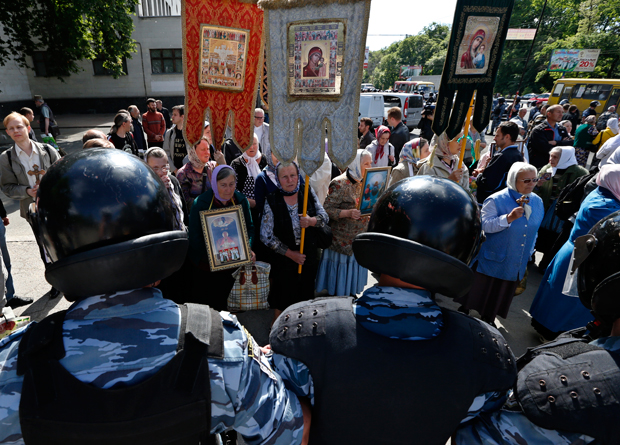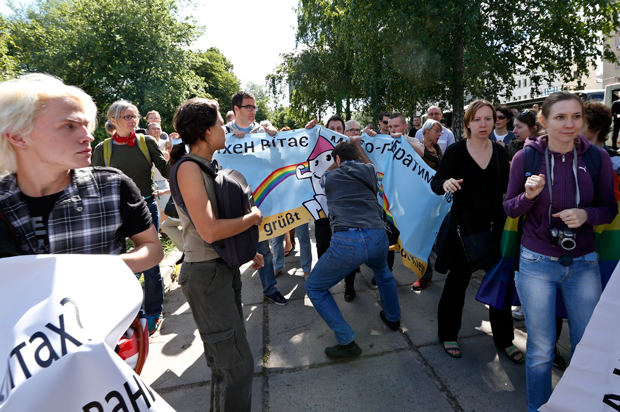18 Sep 2013 | United Kingdom
Index Chair and Times columnist David Aaronovitch, and writer and broadcaster David Baddiel yesterday went head to head over the Football Association’s recent ban on the word “yid”.
The FA last week stated that “yid”, a derogatory term against Jewish people, is considered offensive and that fans using it could face criminal prosecution. The contentious nature of the new regulation stems from the fact that it seems to be largely aimed at fans of Tottenham Hotspur. The club is based in an area of north-London with a large Jewish population, and many supporters use the word as a self-identifier. Fans of other clubs, however, have been known the use the word in antisemitic chants.
The debate was reignited yesterday, when David Cameron weighed in. “There’s a difference between Spurs fans self describing themselves as yids and someone calling someone a yid as an insult,” he told the Jewish Chronicle. “You have to be motivated by hate. Hate speech should be prosecuted – but only when it’s motivated by hate.”
Speaking on Radio 4’s World Tonight, Baddiel, who has campaigned to kick the word out of football, argued that it is a race hate word and should be treated as such. “It’s not just about Tottenham. That particular word is said all over London by Chelsea fans, by Arsenal fans, by Millwall fans, by West Ham fans, with menaces, with associated antisemitic abuse.”
Aaronovitch argued that the problem is people using the word in a negative way , and that is what should be tackled. “[It is offensive] If used by someone as an insult against a Jewish person, yes. If used by a spurs fan as a self identifier, no.”
Hear the whole debate here.
18 Jul 2013 | Americas, Canada, Politics and Society
This year has seen significant developments in Canada’s hate speech legislation, say attorneys Ryder Gilliland and Adam Lazier.

(Wikipedia)
Bill Whatcott is a conservative Christian campaigner who was fined $17,500 dollars in 2005 for distributing hate materials. His case rumbled through the courts until February, when the Supreme Court ruled against him.
In June, however, Parliament voted to repeal a hate speech provision in the federal human rights legislation. This is a significant legislative change, but whether provincial legislatures and courts will follow suit is very much an open question.
The regulation of hate speech in Canada
Hate speech in Canada is regulated in two ways. Section 319 of the Criminal Code makes it an offence to wilfully promote or publicly incite hatred. A violation of Section 319 carries serious consequences, including imprisonment for up to two years. Someone charged criminally under Section 319 has a number of defences available, including “truth”, and that the statements were in the public interest and the accused reasonably believed them to be true.
Hate speech is also prohibited by human rights legislation at both the federal and provincial levels. Human rights legislation carries less serious consequences than the criminal law provisions, but a respondent to a human rights claim has far fewer defences available. Human rights complaints are decided by administrative tribunals rather than courts.
Both types of hate speech legislation have been challenged in court as violations of Canada’s constitutional protection for freedom of expression. These challenges have not met with much success. Although the Supreme Court struck down an antiquated “false news” law used to prosecute holocaust denier Ernst Zundel (R. v. Zundel, [1992] 2 S.C.R. 731), it has upheld the constitutionality of the criminal offence of wilfully promoting hatred (R. v. Keegstra, [1990] 3 S.C.R. 697).
In Whatcott, the Supreme Court largely upheld a hate-speech prohibition in Saskatchewan’s human rights legislation, despite that the provision does not even allow a defence of truth (2013 SCC 11).
The repeal of section 13 of the Canadian Human Rights Act
Just four months after the Whatcott decision parliament voted to repeal section 13 of the Canadian Human Rights Act (the “CHRA”), the federal equivalent to the Saskatchewan law at issue in Whatcott. The repeal comes into effect after one year.
Section 13, which was upheld by the Supreme Court of Canada in 1990, prohibits anyone from repeatedly communicating hate speech over the telephone or internet. The Tribunal can punish contraventions by ordering that the speaker financially compensate the victim. (A provision allowing the Tribunal to also order a $10,000 “penalty” as well was struck down by a 2012 Federal Court decision).
Human Rights Laws: A blunt instrument for regulating speech
Canada’s criminal hate speech laws arguably have a minimal impact on freedom of expression rights, as there is a high burden of proof and there are numerous defences available, including the defence of “truth”. It seems unlikely that mainstream media will be prosecuted, much less prosecuted successfully, under Section 319 of the Criminal Code.
Human rights hate speech laws are different. There are far fewer protections for respondents in human rights cases and the mainstream media has recently had to defend against human rights complaints. Thus, they appear to be a potentially dangerous incursion into free speech territory.
Hate speech laws in human rights legislation rest on a tenuous and sometimes artificial distinction between hate speech and other speech. In the context of libel law, for instance, a speaker has a constitutional right to defences for truth, fair comment, and responsible communication in the public interest. Once statements are classified as “hate speech” in the context of a human rights complaint, however, they lose that protection – a human rights tribunal may order compensation even if the statement is true, and even if it was made in good faith on a matter of public interest.
The line between hate speech and the merely offensive is slippery at best. Whatcott and earlier Supreme Court decisions define hate speech as statements that tend to expose people to “unusually strong and deep-felt emotions of detestation and vilification” on the basis of a prohibited ground of discrimination, which includes things like race, religion, and sexual orientation. However, human rights legislation doesn’t require that anyone prove the statements at issue actually caused hatred. This leaves tribunals and courts guessing about whether the statements at issue could have that effect, or whether they are just “offensive comments or expressions of dislike”.
This combination of strict laws with a slippery definition of hate speech puts everyone’s expression at risk, not just that of extremists. In a recent British Columbia case, the Human Rights Tribunal found that a stand-up comic had engaged in “discriminatory” speech by insulting audience members based on their sexual orientation. The decision was recently upheld by on judicial review (Ismail v. British Columbia (Human Rights Tribunal), 2013 BCSC 1079).
Media organisations have successfully defended against hate speech complaints brought before human rights tribunals, but have incurred significant legal expenses along the way. The imprecise definition of hate speech makes it difficult for the media to assess its risk before publication, and therefore risks chilling debate.
More broadly, freedom of expression relies on courts and legislatures accepting the importance of the “marketplace of ideas”; the notion that society is best served when ideas, even hateful ideas, are disproven through public debate. The “marketplace of ideas” concept formed part of the reasoning behind the Supreme Court’s decision to recognize the responsible communication defence in libel law in 2009 (Grant v. Torstar Corp, 2009 SCC 61). “In the course of debate,” the Court wrote then, “misconceptions and errors are exposed. What withstands testing emerges as truth”.
Hate speech laws in the human rights context, and court decisions that uphold them, are inconsistent with concept of a marketplace of ideas. They threaten free speech. It is encouraging to see parliament repealing section 13 of the CHRA. The question now is who will follow.
Ryder Gilliland is a Toronto-based attorney at Blake, Cassels & Graydon LLP and an executive member of Ad IDEM, the Canadian Media Lawyers Association.
Adam Lazier is an attorney with Blake, Cassels & Graydon LLP.
3 Jun 2013 | Europe and Central Asia

Despite intolerance and government suppression, LGBT supporters held the first gay pride march in the Ukraine. (Photos: Ivan Chernichkin for Index on Censorship)
Despite an initial ban by the authorities, Ukraine successfully held the country’s first ever gay pride parade but the level of intimidation faced by the lesbian, gay, bisexual and transgender community and proposed legislation outlawing ‘homosexual propaganda’ are causing concern for many. Andrew Connelly reports from Kiev
Last week, around 50 LGBT activists gathered on the outskirts of the Ukrainian capital Kiev to conduct the first ever equality march in the post-Soviet nation’s history. The event took place amidst an unprecedented amount of security with several hundred riot police and Special Forces drafted in to protect participants from thousands of protesters from the Orthodox Church, Ukrainian and Russian nationalists and football hooligans.
The parade was originally planned to take place in the centre of town, beginning at Independence Square, the scene of Ukraine’s 2004 Orange Revolution which (temporarily) overthrew pro-Russian President Victor Yanukovich. However, the Kiev district city court banned the event citing the clash with Kiev Day, a series of cultural events held across the city. In reality it would seem that, whilst this was a consideration, the amount of anti-LGBT demonstrators that also submitted applications to hold parallel marches may have more profoundly influenced the authorities’ decision. Still, the move was enough to prompt organiser Stas Mischenko to accuse them of “depriving our right to freedom of assembly” and an alternative location had to be hastily arranged.

Counter demonstrators waved religious banners.
Despite the new site being kept secret, hundreds of crucifix-wielding protesters descended on Victory Avenue, waving banners with expressions such as ‘Kiev is not Sodom’ and ‘Homosexuality = Paedophilia’. LGBT activists were surrounded by lines of police yet the march was still intermittently disrupted when extremists managed to infiltrate the area, attempted to tear down banners and screamed ‘gays out of Ukraine’ and other epithets as they were dragged away into police vans. One firework was thrown that exploded in the middle of the crowd but nobody was injured. In total thirteen arrests were made.

Opponents of the gay pride march attempted to disrupt by tearing down banners.
Nevertheless, the occasion was a marked improvement from last year’s attempt to organise a parade which was cancelled when police withdrew their guarantee of security an hour before the start due to threats from far-right hooligans planning to disrupt the event. Organiser Syvatoslav Sheremet was pepper sprayed then viciously attacked by thugs resulting in his hospitalisation.
Despite being the first post-Soviet country to legalise homosexuality, it remains a strongly taboo subject in Ukrainian society. There are almost no publicly gay figures and legislation does not recognise discrimination based on sexual orientation or gender identity. Ukrainian civil society groups are trying to press for anti-discrimination legislation at the same time as resisting two draft laws that would marginalise and severely infringe the rights of the LGBT community in addition to having a chilling effect of the freedom of the press.
Law 0945 concerns “the protection of children’s right to a safe information space” and proposes a ban on the production and publication of content which “promotes” and propagates” homosexuality that extends to the use of TV, radio, printing of publications, creative writings, cinematography or video materials.
Related: Shutting down Russia’s LGBT community
Elena Vlasenko reports on the continuing official campaign against lesbians and gays.
If this wasn’t authoritarian enough, Law 1155 is even more detailed, far reaching and restrictive in nature, calling for the “prohibition of propaganda of same-sex relationships aimed at children” defining homosexual propaganda as “intentional activity which aims to and is expressed in dissemination of any positive information about same-sex relations which could negatively affect…the development of the child including forming a misconception of traditional and non-traditional marriage relations being equal, and in the future impact his or her choice of sexual orientation.” This extends to a ban on media disseminating information from others that portrays same-sex relations in a positive light. Olena Shevchenko, head of the Kiev-based LGBT NGO Insight, outlines what this means in real terms:
“If you encourage a group of people to read a book of Oscar Wilde, it will be propaganda. If I give an interview in the mass media, openly say that I am a lesbian and that I think that it is normal, just like heterosexuality, then that will also be propaganda.”
Svitlana Tuchynska is a journalist at the Kyiv Post:
“If this law passes it will introduce media censorship. You will not be able to cover any activities of the LGBT community at all, any problems that they face or any opinions they have on their sexuality.”
The list of criteria is extensive, covering demonstrations, mass gatherings, workshops and classes amongst other public meetings. Violations of the law may result in fines reaching up to €2,400 or jail sentences of up to six years
“This legislation will affect us because we are spreading information about homosexuality amongst LGBT and the general population, that’s part of our job and this will definitely be considered propaganda”, Kiev Pride organiser and Vice President of Gay Alliance Ukraine Stas Mischenko explained.
“Such laws are very dangerous because I work in HIV prevention and people who are living under these harsh conditions don’t take care of themselves. They hear from other people that they are second class and they have no future, so they have risky sexual behaviour. If you are not able to explain to them that they are normal and good people, they will have more risky behaviour and the level of HIV will double or triple”, Mischenko said.
Ukraine currently has the highest HIV infection rate in Europe.
Hostile attitudes towards sexual minorities remains deeply rooted in Ukrainian society and these prejudices are now legitimised in parliament. Following the 2010 elections, the ultranationalist Svoboda (Freedom) party won 10% of the popular vote and have since stirred up homophobic, anti-Semitic and xenophobic sentiment in the country. In December 2012, an LGBT protest was disrupted by activists from the party who tear gassed and assaulted demonstrators, one of whom received a broken nose. On the official Svoboda website, a spokesman boasted of “breaking up the Sabbath of perverts”. Hate crimes are not legally recognised as such and are often referred to as ‘hooliganism’ with perpetrators rarely brought to justice.
The government in Kiev is currently deliberating whether to choose closer integration with Europe or to strengthen ties with Russia, but for Ukraine’s LGBT community the proposed propaganda legislation risks dragging the country to a much darker place entirely.





